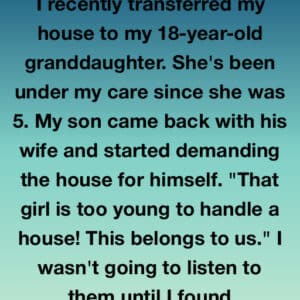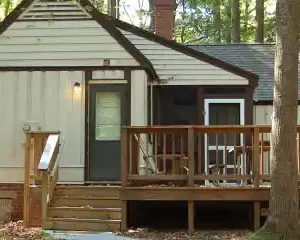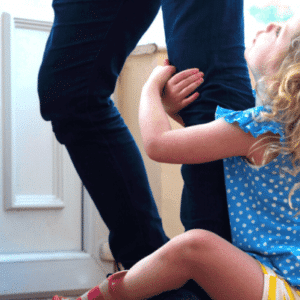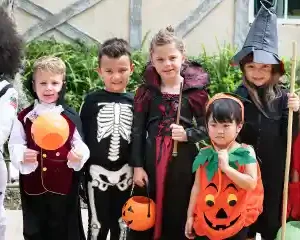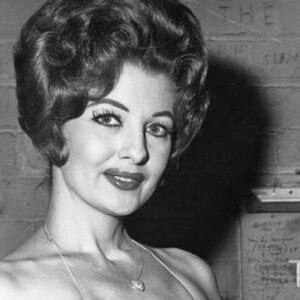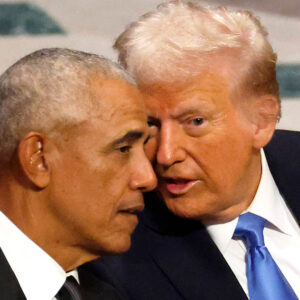We turned into the driveway on a chilly October evening, headlights sweeping across our front yard—and my stomach dropped. The witch lay face down in the mud, one plastic hand torn off. Our cobwebs were shredded and tangled across the grass like wet laundry. Orange pulp smeared the walkway where our pumpkins used to grin. The string lights had been yanked down and scattered, bulbs like little glass teeth glinting in the dark.
For a second I thought: teenagers. A prank. Then Emma gasped beside me, and Luke whispered, “Mr. Bones?”—his favorite skeleton—staring at the patch of dirt where only a snapped leg remained.
Halloween is our holiday. Some families go big for Christmas. We go big for the spooky season. All September, Mark and I let the kids pitch ideas over dinner—glitter “potions” courtesy of Emma, ghost stories and skeleton placements courtesy of Luke. Every year we turned the yard into a friendly little haunted wonderland. Our whole street joins in: porches lined with pumpkins, plastic spiders drooping from trees, a soft glow of orange and purple lights after dusk. It’s the kind of neighborhood where kids play tag in the cul-de-sac and neighbors borrow sugar with a wave.
We had left two days earlier to help my mom after her knee surgery. We’d waved goodbye to our handiwork, fog machine and all, expecting to return to the happy mess of fallen leaves and maybe a stray candy wrapper. Not this. Not ruin.
Mark’s the calm one, but I saw his jaw tighten. “Who would do this?” I asked, though I wasn’t sure I wanted the answer. Emma started crying, face buried in my coat. “It’s gone,” she sobbed. “Everything’s gone.”
“It’s okay,” Mark told her, gentle and steady. “We’ll fix it.” Then he looked at me, and I knew he planned to do more than fix it. He planned to find out who.
Inside, he pulled up our garage camera on his phone. The screen stayed black. “Battery?” I asked.
He shook his head. “It’s off. Someone turned it off.”
The house went very quiet. Whoever did this didn’t just vandalize; they made sure we wouldn’t see them do it. We tucked the kids into bed with extra blankets and whispered reassurances we didn’t feel. Then we crossed the street to see Mr. Jenkins.
He’s the best kind of neighbor—former teacher, soft voice, the sort of man who pretends not to notice when you bring his casserole dish back two weeks late. “Let’s check my doorbell camera,” he said, ushering us in. He scrolled to Saturday at dusk, and there it was: a hooded figure cutting across our driveway toward our porch. He paused and zoomed in.
My heart dropped. I didn’t have to guess. It wasn’t a kid. It wasn’t a stranger.
It was my mother-in-law.
Mark stared at the screen, color draining from his face. “That’s my mother.”
We watched her in the footage: yanking lights, smashing pumpkins, tearing at the webbing with jerky, angry movements. No hesitation. The camera caught everything our own couldn’t.
I covered my mouth. Evelyn can be blunt. Proud. She can make a compliment sound like a correction. But destroying her grandkids’ decorations? Turning joy into rubble? I didn’t know what to do with that.
“I’ll handle it,” Mark said, voice low. He left without slamming the door, the kind of quiet anger I’ve only seen a handful of times. I sat on the couch, staring at the blank TV. I tried to make excuses for her in my head—confusion, a misunderstanding—but the footage wouldn’t bend.
An hour later he came home, shoulders set like stone. “She admitted it,” he said. “All of it.”
“Why?”
“Because we went to your mom’s and not to hers.” He rubbed his forehead, exhausted. “She said she felt ‘left out.’ ‘Forgotten.’ After ‘everything she’s done,’ she ‘deserves respect.’”
“So she wrecked Halloween,” I said, feeling equal parts stunned and angry. “To make a point.”
He nodded. “I told her she isn’t welcome here until she understands what she did.”
It should have ended there, but it didn’t. Because it wasn’t just our front yard that got wrecked. The kids refused to go outside. Emma wouldn’t look at the porch. Luke asked if we had to move because “the mean monster” ruined Halloween. I could forgive a mistake. This was a choice. And it left a mark deeper than broken lights.
The next morning, Mark paced. “She can’t just do this and shrug,” he said. “Not this time.”
We decided on consequence, not chaos. We went to the police to file a report—not to press charges, but to document. We showed the officer the footage from Mr. Jenkins. He watched, then nodded slowly. “Tough,” he said. “But you’re right. Consequences don’t have to be punishment.”
Then we turned to the kids. “We’re rebuilding,” I told them. “Our way.”
“It won’t be the same,” Emma sniffled.
“No,” I said, “it’ll be better.”
By late afternoon the doorbell was a revolving door. In a small town, news moves faster than the wind. Neighbors arrived with boxes of lights, spare tombstones, a giant inflatable spider someone hadn’t used in years. Mr. Jenkins appeared with a fog machine and a wink. “Can’t let the ghosts win,” he told Emma. Luke carried plastic bones like precious cargo. Mark wove new string lights into the porch rail. The kids hung fresh cobwebs and shrieked when the cackling witch came back to life. Our yard didn’t just return; it bloomed. It glowed.
We took a photo at sunset: kids laughing, neighbors waving, pumpkins grinning bright. Mark slid it into an envelope and taped it to his mother’s door. On the back he wrote, You tried to take the joy out of Halloween. Instead, you reminded us how strong our family—and this street—really are.
Two days later, she knocked. Her eyes were swollen; she held a pumpkin pie like a peace flag. “I came to apologize,” she said, voice small. “To you. To the kids. To everyone.”
“You hurt us,” Mark told her, not unkindly. “Why would you do that?”
She looked at her hands. “Because I felt left out,” she said. “You never come to my house. You went to her mother’s. I just wanted to matter again.”
For the first time, I saw past the prickliness to something rawer: loneliness. The kind that makes people grab at attention any way they can, even the ugliest ways. It didn’t excuse anything. But it explained how a person becomes the villain in her own family story.
She promised to pay for everything she’d broken and asked if she could help next year. Children have a way of running toward grace before adults can catch up. Emma hugged her immediately. “You can carve pumpkins with me,” she whispered. Luke asked if she’d hold the bowl while he scooped seeds.
Mark’s face softened. “Alright, Mom,” he said. “But you’ll have to earn it.”
Something changed after that. She started coming by for Sunday dinner, not with instructions or running commentary, but with a salad and a willingness to sit and listen. The kids showed her their school art projects; she learned where the good crayons live and that fog machines need more juice than you think. She stopped comparing houses and started asking about Emma’s potions and Luke’s skeleton placement strategy. In November my mother came down, and for the first time in years both grandmothers sat at the same table, laughing while the kids snapped wishbones and argued about whipped cream.
We rebuilt the yard that week, but we rebuilt something else too. Not perfectly. Not all at once. But enough. Enough that when I looked out at our porch on Halloween night—lights glowing, fog spilling, plastic witch shrieking like she owned the block—I thought about how easy it is to mistake the scariest monsters. They’re not the ones in rubber masks. They’re the ones that creep in quiet: jealousy, pride, the ache of being left out.
And the best “revenge,” if you can call it that, wasn’t a fight at her door or a blast on social media. It was consequence with a spine and a hand extended afterward. Documenting what happened. Rebuilding bigger. Taping a photo to a door that said: you didn’t break us. Then letting her decide whether she wanted to be part of a brighter version of the story.
This year, Emma’s already drawing plans involving a cauldron, a bubble machine, and at least three friendly ghosts. Luke says Mr. Bones needs a brother. Mark’s wiring the lights with a grin. And when Evelyn stops by with a bag of pumpkin stencils, she knocks, waits to be invited in, and sits cross-legged on the floor with the kids—careful, quiet, trying.
The yard glows brighter now. So do we.
